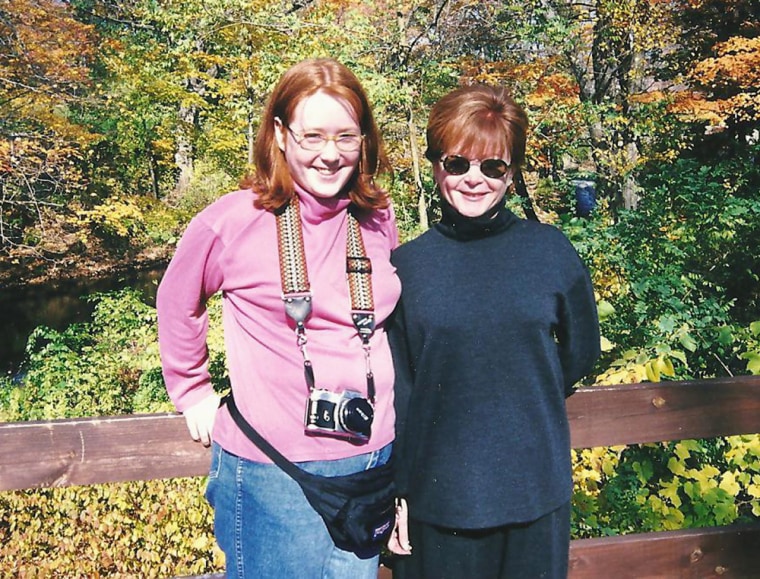Potentially life-saving fecal transplants that use poop to cure nasty gut infections may become harder to get now that government health officials are getting serious about regulating the procedures.
Food and Drug Administration officials say they have started requiring doctors and clinics that perform fecal transplants to apply for investigational new drug applications, known as INDs, in order to continue their work.
The federal officials say that will boost “regulatory clarity” about the procedures. But doctors say that, for now, the time-consuming INDs could bring poop transplants to a virtual standstill.
“I’m already seeing that because of this requirement, a lot of doctors that were doing fecal transplants have either shut down or put their patients on hold,” said Dr. Colleen Kelly, a gastroenterologist with the Women’s Medicine Collaborative in Providence, R.I.
“I’ve had probably 20 patients a week trying to get here to have it done.”
That means there may be more patients like Barat McClain, 61, a lawyer who traveled nearly 1,000 miles from Chicago to Providence so that Kelly could perform a desperately needed fecal transplant last month.
“I had to do it,” said McClain, who suffered for more than a year from debilitating diarrhea and stomach cramps caused by a Clostridium difficile, or C. diff, infection tied to antibiotic use. “I pushed and pushed and pushed to get an appointment. She has people from all over the country waiting to see her.”
Until now, the FDA hasn’t tracked information about results of the treatments that use diluted stool from a healthy person to repopulate bacteria in the gut of someone who is ill, typically with a dangerous C. diff infection. The stool is administered through an enema or a tube through the nose.
But now, with growing interest in the procedure -- and growing evidence that it works -- the agency is stepping up efforts, said Curtis Allen, an FDA spokesman.
“We want to provide regulatory clarity,” Allen said, adding later: “Our intention is not to interfere with life-saving treatment, but to assure that patients’ rights and safety are protected and to encourage scientifically valid studies to determine the proper applications and procedures for fecal microbiota transplants.”
In an emergency, a request for a fecal transplant can be made by phone or email and FDA officials can approve it before the IND is filed, Allen added.
Practitioners say the FDA has not insisted on INDs previously except for in clinical trials. The complicated applications can take weeks to complete and a month or more for approval. Allen didn’t know how many fecal transplant INDs had been submitted so far.
Kelly, who is conducting a clinical trial involving fecal transplants, said it took her two years to wade through the requirements of an IND before she began -- and the final document weighed 23 pounds. When she realized the FDA might start requiring INDs for everyday fecal transplants, she applied again and found it was still time-consuming, even with her previous experience.
“I literally cleared my schedule in the office for two weeks of 12-hour days,” Kelly said. “The IND process is not ideal. There’s no ‘IND for Dummies.’ When you’re a doctor who wants to do this, it’s not a real straightforward process.”
There are probably only about 20 doctors routinely performing fecal transplants in the U.S. now, Kelly said. Between 500 and 700 patients have received the procedure worldwide, according to doctors’ estimates.
C. difficile infections strike more than 336,000 people in the U.S. each year and are linked to more than 14,000 deaths, according to the Centers for Disease Control and Prevention. They typically occur when people take antibiotics that wipe out good bacteria in the gut along with the bad, allowing C. diff to flourish.
In Barat McClain’s case, she was prescribed the antibiotic clindamycin after a dental procedure.
“Within five or six weeks I was lying in bed, my stomach cramps were so debilitating,” she recalled. Tests showed she had a C. diff infection.
Interest in the seemingly distasteful procedure is rising because of growing evidence that it works to cure recurrent C. difficile infections quickly and completely. A January study in the New England Journal of Medicine found that fecal transplants cured nearly all patients with recurring C. diff infections, far lower than rates with traditional antibiotics in two comparison groups. Other studies have found cure rates as high as 90 percent or better.
Better regulation of fecal transplants is a good idea overall, say Kelly and other doctors. Data will provide more information about when, how and why the procedures seem to work so well. And the IND requirement could prevent unscrupulous providers from offering the therapy.
“When there is a limited resource like this and people are desperate, there come sharks,” said Kelly, noting that she's heard of people charging $10,000 for a fecal transplant. “It’s a lot more tricky than just throwing whole stool into people and seeing what happens.”
Patients like McClain, who received her stool donation from daughter Claire McClain, 31, of Arlington, Mass., hope that the FDA works quickly to streamline paperwork for the procedure that cured her “terrible, terrible” infection within days.
“If someone in their family or their colleagues or a good friend were to come down with this there would be more conversation,” she said. “I fear many doctors will say, ‘It’s just a procedure I can’t afford to do. Time is money and I can’t afford to spend my precious time filling out the damn forms'.”
Related:
